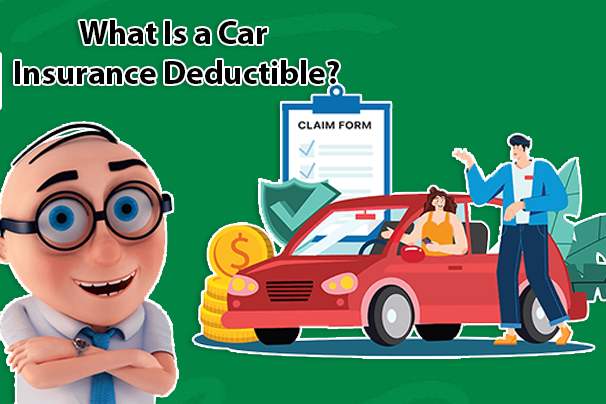What Is a Car Insurance Deductible – Have you ever stopped around for car insurance at any point in time? Or you don’t know what a deductible means. The deductible is the amount you pay when you file a claim for car insurance. After the deductible is paid, the insurance company helps cover car repair and medical expenses within policy limits.

If your car sustains damage, like being hit by hail, and you have comprehensive coverage, you can file a claim with your insurer to cover the loss. However, before the auto insurance company pays for the hail damage repair, your deductible is deducted from your claim check. Typically, the deductible for car insurance is a flat amount, like about $500 or $1,000.
How Does a Car Insurance Deductible Work?
Your car insurance provider requires you to select a deductible amount when you enroll in certain coverages, like collision coverage. The standard deductible is about $500, but options range from $0 to $2,000. If you file a claim that needs the deductible, you must pay the deductible amount out of pocket before your insurer covers any damage costs.
Your insurer can try to recover payment from the driver responsible for the damage to your car, with any deductible you paid, if the fault of an accident is disputed. If you are somewhat at fault for an accident, only a portion of the costs may be recovered. If your insurer recovers all claim costs and you are not at fault, the deductible you paid will be repaid.
Types of Car Insurance Deductibles
Car insurance deductibles are naturally due when you file a claim under one of the following coverage types, and they are as follows:
Comprehensive Coverage
Comprehensive coverage is an insurance type that covers vehicle repairs due to events like burglary, theft, or hail damage. The deductible for comprehensive coverage varies between $50 and $1,000, according to the National Association of Insurance Commissioners.
Uninsured Motorist Coverage
Uninsured motorist coverage is insurance that helps cover vehicle repair costs when an uninsured driver collides with your car. In some states, the deductible for this coverage may be lower than that of collision insurance. And the law limits the deductible amount to the range of $150 to $500.
If you total your vehicle but still owe money on the auto loan or lease. The insurance settlement may not cover all the amount due to the lender or car lease company. Guaranteed auto protection (GAP) insurance assists in paying the difference. The policy may also cover the essential deductibles, depending on the coverage.
Collision Coverage
Collision coverage is another type of insurance that assists in paying for repairs to your vehicle. This is if you hit another car or a stationary object like a guardrail or pole. The standard deductible amounts for collision coverage range from $200 to $1,000, as stated by the California Department of Insurance.
Personal Injury Protection (PIP)
Personal injury protection (PIP) is an insurance policy that assists in covering lost wages and medical expenses for you and your passengers, regardless of who was at fault in an accident. This coverage may be needed in no-fault states. Unlike other types of coverage, you may be responsible for some medical expense co-pays with PIP, even after paying the deductible.
Situations with No Deductible
There are some situations where you probably won’t pay the car insurance deductible. Some of them are listed below:
- When it comes to car insurance, deductibles are a vital element of the policy. In case of an accident, if you are at fault, your liability coverage will pay for the damages up to the limit of your coverage.
- If an uninsured or underinsured driver is at fault, some states or insurers may surrender the deductible for certain bodily injuries under your uninsured/underinsured motorist (UI/UIM) coverage.
- If you have a zero-deductible policy, a deductible waiver, or a “diminishing deductible” endorsement on your policy, you can have a $0 deductible for some coverages or with some insurers.
- If the other driver causes the accident, their obligation coverage will cover your damages up to their coverage limits. When it comes to repairing or replacing your car’s glass, some insurers may ignore the deductible if you choose to repair the glass instead of replacing it.
- Additionally, in some states, insurers are needed to provide zero-deductible window glass coverage if you have comprehensive coverage.
The lists above are just some of the situations where you probably won’t pay the car insurance deductible.
Final Thought
It is vital to choose your deductible amount carefully, as it can have a significant impact on your yearly cost. It is recommended that you shop around and compare quotes from different insurers, as deductible and premium amounts may vary from one insurer to another.



